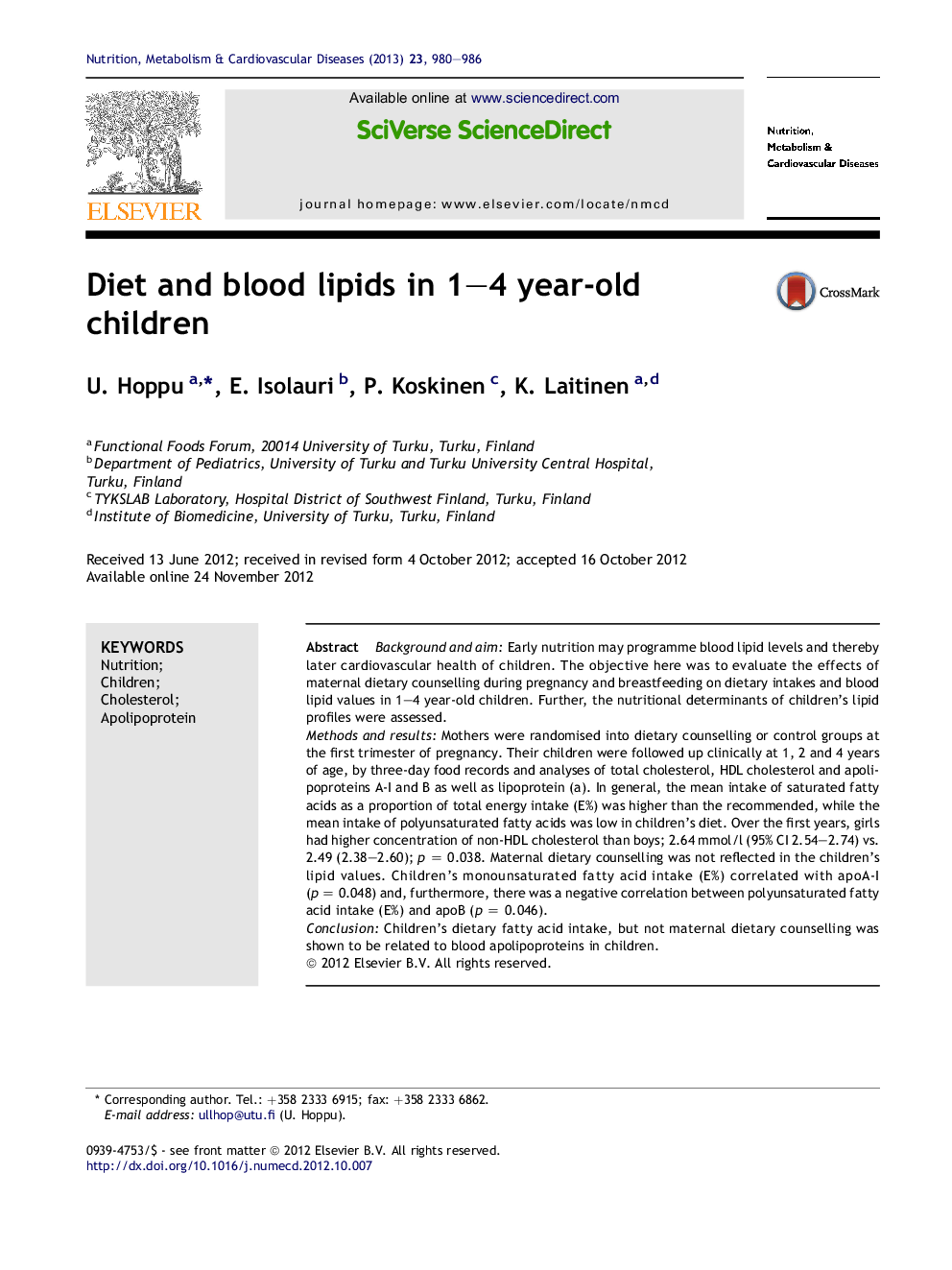| Article ID | Journal | Published Year | Pages | File Type |
|---|---|---|---|---|
| 3002261 | Nutrition, Metabolism and Cardiovascular Diseases | 2013 | 7 Pages |
Background and aimEarly nutrition may programme blood lipid levels and thereby later cardiovascular health of children. The objective here was to evaluate the effects of maternal dietary counselling during pregnancy and breastfeeding on dietary intakes and blood lipid values in 1–4 year-old children. Further, the nutritional determinants of children's lipid profiles were assessed.Methods and resultsMothers were randomised into dietary counselling or control groups at the first trimester of pregnancy. Their children were followed up clinically at 1, 2 and 4 years of age, by three-day food records and analyses of total cholesterol, HDL cholesterol and apolipoproteins A-I and B as well as lipoprotein (a). In general, the mean intake of saturated fatty acids as a proportion of total energy intake (E%) was higher than the recommended, while the mean intake of polyunsaturated fatty acids was low in children's diet. Over the first years, girls had higher concentration of non-HDL cholesterol than boys; 2.64 mmol/l (95% CI 2.54–2.74) vs. 2.49 (2.38–2.60); p = 0.038. Maternal dietary counselling was not reflected in the children's lipid values. Children's monounsaturated fatty acid intake (E%) correlated with apoA-I (p = 0.048) and, furthermore, there was a negative correlation between polyunsaturated fatty acid intake (E%) and apoB (p = 0.046).ConclusionChildren's dietary fatty acid intake, but not maternal dietary counselling was shown to be related to blood apolipoproteins in children.
